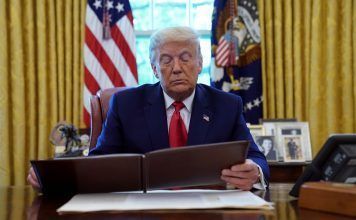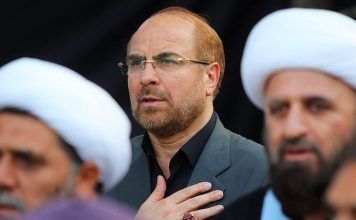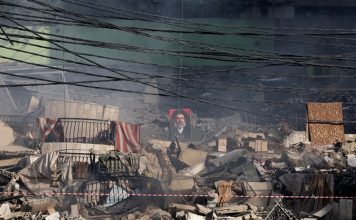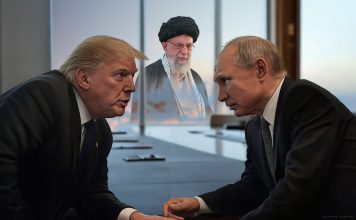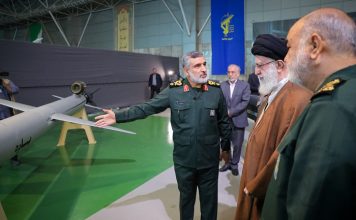Iran’s government knows “the political and diplomatic price they are paying for their brutality [towards the Iranian people],” the UK Foreign Office Minister Andrew Mitchell has said.
Mitchell made the remarks during a June 7 debate at the British Parliament to provide an update on the UK’s current policy on Iran.
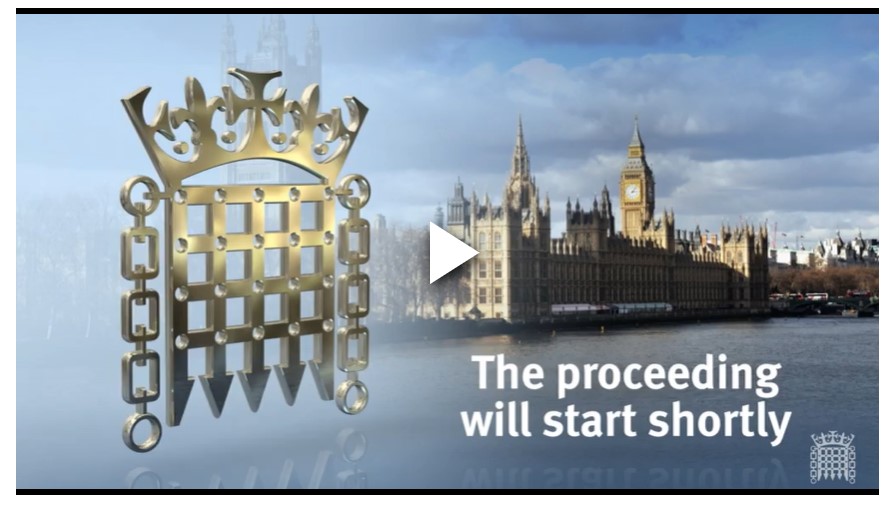 Mitchell, who was also asked about the UK’s position on the Joint Comprehensive Plan of Action (JCPOA), also known as the 2015 nuclear deal, said: “We remain committed to ensuring that Iran never develops a nuclear weapon, and are working closely with our partners to find a diplomatic solution,” he said.
Mitchell, who was also asked about the UK’s position on the Joint Comprehensive Plan of Action (JCPOA), also known as the 2015 nuclear deal, said: “We remain committed to ensuring that Iran never develops a nuclear weapon, and are working closely with our partners to find a diplomatic solution,” he said.
Mitchell did not offer further details about whether any diplomatic solution included resuming talks with Iran.
[aesop_image img=”https://kayhanlife.com/wp-content/uploads/2023/06/2023-05-09T090653Z_374292039_MT1FTRPLC000ZTQT5L_RTRMADP_3_FUTURE-PUBLISHING.jpg” panorama=”off” align=”center” lightbox=”off” captionsrc=”custom” caption=”LONDON, UNITED KINGDOM – MAY 09, 2023: Minister of State (Minister for Development) in the Foreign, Commonwealth and Development Office Andrew Mitchell leaves 10 Downing Street after attending the weekly Cabinet meeting in London, United Kingdom on May 09, 2023.” captionposition=”left” revealfx=”off” overlay_revealfx=”off”]
According to a March 22 tweet by Ali Bagheri Kani, Iran’s nuclear negotiator and political deputy at the Ministry of Foreign Affairs of Iran, a meeting with representatives from the UK, France and Germany has been held in Oslo to discuss “a range of issues of mutual interest and concern.”
[aesop_image img=”https://kayhanlife.com/wp-content/uploads/2022/08/2022-06-23T000000Z_996378387_RC2MXU9KV01R_RTRMADP_3_IRAN-RUSSIA.jpg” panorama=”off” credit=” FILE PHOTO/REUTERS./” align=”center” lightbox=”on” captionsrc=”custom” caption=”Iran’s chief nuclear negotiator Ali Bagheri Kani looks on as Russia’s Foreign Minister Sergei Lavrov speaks during a joint news conference with Iran’s Foreign Minister Hossein Amir-Abdollahian, in Tehran, Iran June 23, 2022.” captionposition=”left” revealfx=”off” overlay_revealfx=”off”]
Topics raised at the debate included: Iran’s prolific use of the death penalty; Iran’s Revolutionary Guard Corps (IRGC); Iran’s supply of drones to Russia; sanctions; Iran’s treatment of protesters, women and children; its treatment of the LGBTQ+ community and religious minority groups; press freedom; unjustly detained dual nationals; Iranian asylum seekers in the UK; and Iran’s support for militant groups including Lebanon’s Hezbollah and Yemen’s Houthis.
Addressing questions by lawmakers about the UK’s view of the death penalty in Iran, Mitchell said: “His Majesty’s government strongly opposes the death penalty in all circumstances. Our ambassador in Tehran [Simon Shercliff] ensures that Iran leaders are left in no doubt about the political and diplomatic price they are paying for their brutality.”
Iran is the second most active country after China for its use of the death penalty and is the world’s most prolific executioner of women and children.
Iran Executed More Women in 2022 Than Any Other Country, Report Says
Iran has been accused of using the death penalty to silence anti-government protesters, after demonstrations broke out in September. The protests began following the death of 22-year-old Kurdish-Iranian Jina Mahsa Amini, who died of injuries she sustained while in police custody. Mitchell said the UK government had implemented more than 70 human rights sanctions on Iran since the start of the protests.
During the debate in the Parliament, several lawmakers accused the Iranian government of destabilizing a number of countries around the world. They said that the destabilization stemmed from the IRGC, a top military wing in charge of the state’s domestic, international, security and economic affairs.
“The Islamic Revolutionary Guard Corps has never been more powerful. Indeed, it is perhaps an understatement to refer to the IRGC as a branch. [The news outlet] Reuters have called it an industrial empire, and it is estimated that anywhere between 10 percent and 50 percent of the Iranian economy is controlled through its subsidiaries and trusts,” Andrew Gwynn, a Labour Party member, said.
The lawmakers — who represented the Conservative, Labour, Liberal Democrat and Scottish National parties — went on to urge the government to list the IRGC as a terrorist organization.
“We don’t routinely comment on whether an organization is or is not under consideration for prescription, but the house may rest assured that across all parts of the government, these matters are kept under the closest possible review and are looked at to assess the most effective way of proceeding,” Mitchell said.
Mitchell added that the UK had sanctioned the IRGC in its entirety, as well as 29 individuals and entities affiliated with the group, since October.
The request followed a unanimous Jan. 12 UK House of Commons cross-party resolution to proscribe the IRGC. The resolution, which is not binding and does not require the government to enact a designation, described the deadly crackdown on protesters in Iran by security officials, which has left at least 500 people dead, including 70 children.
At another point in the debate, the lawmakers blamed Iran for fueling Russia’s unprovoked war with Ukraine, through its supply of drones to Russia. “We strongly condemn Iran’s actions in supporting Russia’s illegal war,” Mitchell said. “We will continue to call out this desperate alliance, on the international stage, and hold Russia and Iran to account.”
“Iran poses an increasing military threat at home and abroad. In Ukraine, Iranian-made Shahed drones have played a central role in Russia’s illegal war and its attacks on civilian targets in Ukraine,” Catherine West, a Labour party member and the shadow minister for foreign and commonwealth affairs, said.
Conservative Party member Brendan Clarke-Smith said Iran posed “one of the most immediate threats to the UK’s national interest, and domestic security.” Clarke-Smith criticized the US government’s approach to Iran and asked the UK to develop its own separate policy.
“The collective failure in Iran policy over the last decade or so is currently exemplified by the [U.S. President Joe] Biden administration’s ongoing efforts to separate Iran policy into different areas — human rights abuses, the nuclear program, ballistic missiles and support for terrorism — regardless of how interlinked they all are. History has shown that they can only ever be dealt with as a whole. The failed approach is no longer tenable, and the UK should take the opportunity to pursue an independent Iran policy,” Clarke-Smith said.
Lawmakers also discussed the discrimination faced by minority groups such as Baha’is, and the LGBTQ+ community. The US State Department called Iran’s treatment of its religious minorities “appalling,” in a May 26 interview with Kayhan Life.
The United Nations special rapporteur on the situation of human rights in Iran, Javaid Rehman, has continuously expressed concerns about Iran’s treatment of LGBTQ+ individuals in the country.
Additional concerns held by the UN about Iran’s treatment of women and girls led the organization to expel Iran from its women’s rights commission on Dec. 22, becoming the first government in the UN’s history to be removed from the commission.
Responding to questions about the suspected poisonings of girls in Iran’s schools, put forward by Conservative Party member John Howell, who leads the UK delegation to the Council of Europe, Mitchell said: “The reports of school girls being poisoned in Iran are deeply sinister and we are continuing to monitor the situation closely.”
An estimated 1,000 girls and an unknown number of boys have been affected by unexplained illnesses linked to the incidents. The cause of the incidents and the perpetrators remain unclear.


